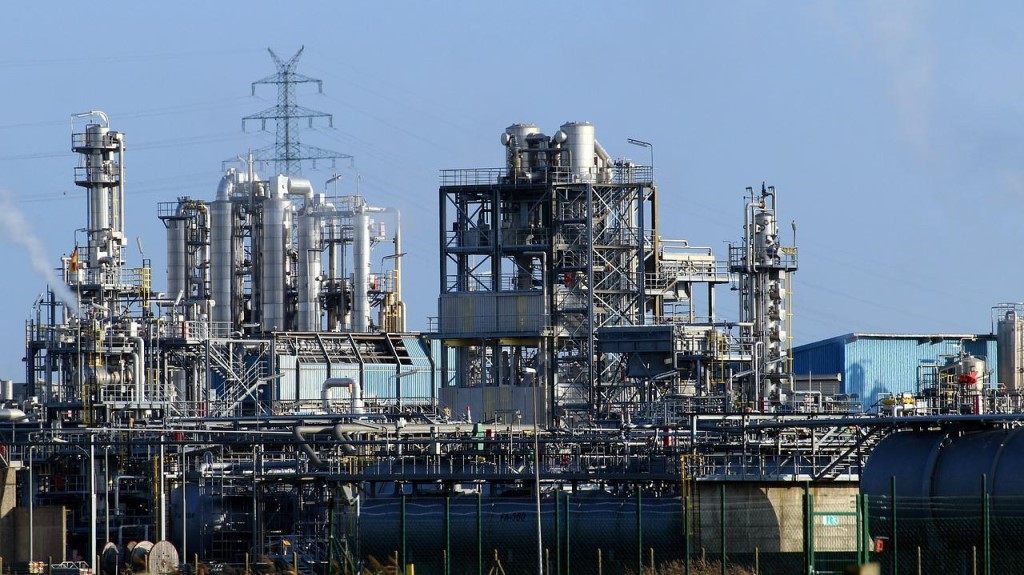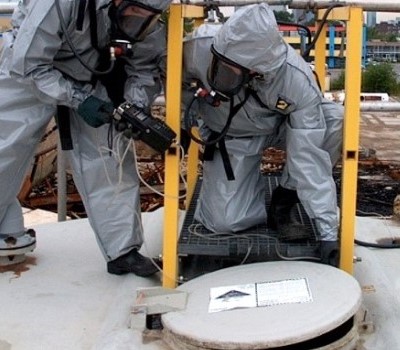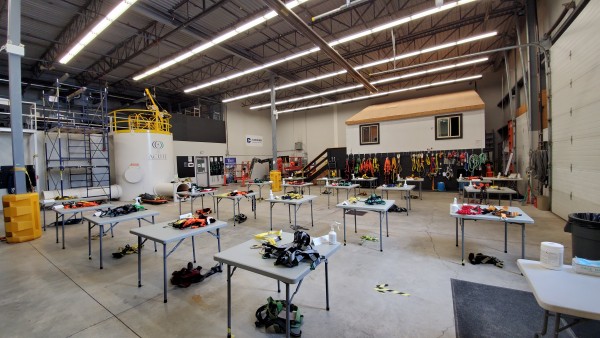What is environmental toxicology? It is a field of study that deals with the assessment of toxic substances that are found in the environment. Click on the following sections to learn more.
- What is environmental toxicology? A detailed description
- What are environmental toxins?
- Industries that deal with environmental toxins
- Training courses that prepare you for dealing with environmental toxins
If you are looking for professional training to help prepare you or your staff who come in contact with environmental toxins, contact us.

What is environmental toxicology? The assessment of toxic substances that are found in the environment – Image by Steve Buissinne from Pixabay
1. What Is Environmental Toxicology? A Detailed Description
Environmental toxicology is a field of study that primarily includes the following:
- Assessing toxic substances in the environment
- Monitoring environments to see if any toxic substances are present
- Discovering the effects of toxins on biotic (living things in an ecosystem) and abiotic (non-living things in an ecosystem) components of various ecosystems
- The “metabolism and biological and environmental fate of toxins“
Environmental toxicology is one of the environmental sciences. It is a relatively new field which began in the mid-20th century.
It relies on and uses many of the principles and techniques that are found in other fields such as:
- Biochemistry
- Cell biology
- Developmental biology
- Genetics
- Computing and Math Sciences
Major Concerns of Environmental Toxicology
Some of the major concerns that environmental toxicology deals with include:
- Oil spills
- Nuclear and medical waste dumping
- Air and water pollution
- Impact of harmful substances released into environmental reservoirs such as synthetic hormones
Watch the video to learn more about what environmental toxicology is
2. What Are Environmental Toxins?
Environmental toxins are any substances or organisms that will negatively affect your health. They could be poisonous chemicals, organisms that cause diseases, and physical materials that can disrupt your biological processes.
There are many different types of toxins that are found in different sources including:

Cigarette smoke is an environmental toxin – Image by Alexas_Fotos from Pixabay
3. Industries that Deal with Environmental Toxins
Many different industries produce and or come in contact with environmental toxins. Workers in these industries need proper training on how to safely handle toxins so that they don’t pose an environmental hazard. They also need proper training on how to protect themselves and clean up toxins if they are accidentally released into the environment.
Some of the more common industries that deal with environmental toxins include:
- Manufacturing
- Mining
- Construction
- Environmental services
- Industrial
- Health care
- Energy sector

Many different sectors deal with environmental toxins – Image by Frauke Feind from Pixabay
4. Training Courses that Prepare You for Dealing with Environmental Toxins
There are several different types of training that can help to prepare you and your workers to deal with environmental toxins. Here are a few that ACUTE offers.
For a full list of all of our health and safety training courses, click here.
40 Hour HAZWOPER
This training program covers the requirements of the OSHA HAZWOPER standard (29CFR 1910.120). This standard sets out the minimum training requirements for site workers on hazardous waste sites, environmental remediation and emergency projects in the United States of America. The quality and comprehensive nature of this standard make it applicable and attractive to those employers and workers who work at Canadian workplaces that contain environmental contamination or hazardous materials.

Basic Mould Awareness
Mould growth on the interior surfaces of buildings is a risk for health problems. This is a general knowledge training program for anyone associated with buildings. This is a valued training program as every building has or will experience water and mould damage during its service life.

Asbestos Abatement Type 1 and 2
This training program is geared towards Construction and Maintenance Workers and their Supervisors that will need to conduct Type 1 and Type 2 Operations such as Emergency Clean-up, Removal and Replacement of Asbestos Containing Ceiling Tiles, Minor Asbestos Removals, Cutting and Drilling of Asbestos-Containing Plaster and Drywall.

Asbestos Abatement Supervisor 253 S
Supervisors of Type 3 asbestos abatement work are required to be certified to perform their supervisory role. This training program prepares a supervisor to write the Ontario Ministry of Training Colleges and Universities exam for Trade Code 253S as per Section 20 of Ontario Regulation 278/05 – Designated Substance – Asbestos on Construction Projects and in Buildings and Repair Operations.

Spill Response
This training program will cover the legislative requirements and measures for spill reporting and cleanup. Participants will be taught practical strategies to both prevent and safely contain spills that occur in the workplace. Training programs are routinely customized to reflect client sites and products.

Transportation of Dangerous Goods
Transportation of dangerous goods training participants will be presented with a thorough overview of the Transportation of Dangerous Goods Regulation (TDGR). TDGR provisions will be explained in simple terms to help learners ensure that dangerous goods will be handled, offered for transport and transported safely.

Respiratory Protection and Fit Testing
This training program will teach participants the legal and practical requirements for the use of respiratory protective equipment in the industrial and agricultural workplace. The program includes a review of various types of respiratory protective systems.
Customer-specific training programs are offered. These courses are routinely customized to ensure specific coverage of specific brands and types of respiratory systems used by our clients.

Need Workplace Safety Training? Contact ACUTE
You can trust ACUTE for the best workplace safety training possible. ACUTE’s experienced team members have been serving safety professionals for over 20 years.
You can rely on ACUTE for hands-on, physically distanced, practical safety training to keep your employees safe in the workplace. ACUTE is dedicated to workplace safety and understands the importance of course and training provider approval.
Why get workplace safety training with ACUTE?
Here are just some of the benefits of working with ACUTE:

- Open Door Instructor-Student Partnership – ACUTE’s training services emphasize client participation. Staff foster relationships with clients and serve as a touchstone for advice anytime moving forward.
- Serving Your Team and Industry – With a vast array of clients in the manufacturing, construction, health, academic, and government sectors, ACUTE brings the best safety practices from across the spectrum to your workplace.
- 100 Years Combined Experience – ACUTE provides comprehensive health and safety training, on-site safety services, and consulting services. With over 100 years of combined experience, our company staff offer more than theoretical or abstract ideas. ACUTE offers solutions.
- Track Record of Success – ACUTE is rated 4.9/5 stars on Google reviews, demonstrating a commitment to our clients, quality, and passion for training.
Check out our course calendar for times and dates of our courses.
What Our Customers Are Saying…
“I work at the University of Guelph as an arborist. Ron Campbell provided a small socially distanced group and myself with working at heights training. Ron has a wealth of knowledge and kept everyone engaged with many “real life” examples of working at heights scenarios and facts. We have also received elevated work platform training with Patrick from Acute training. Patrick is also a very friendly, knowledgeable and engaging professional trainer. I truly believe that the best trainers are those with practical experience and the trainers at Acute have that locked down.”

